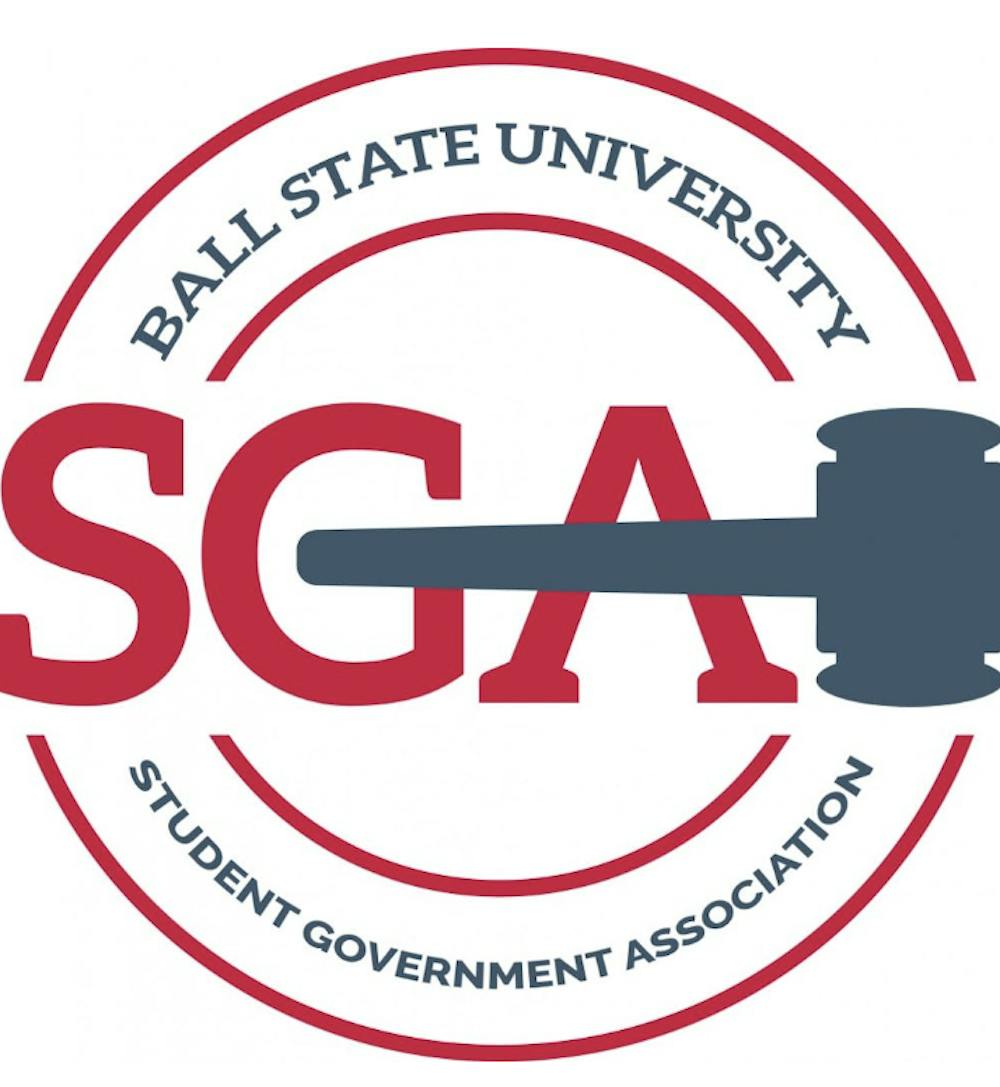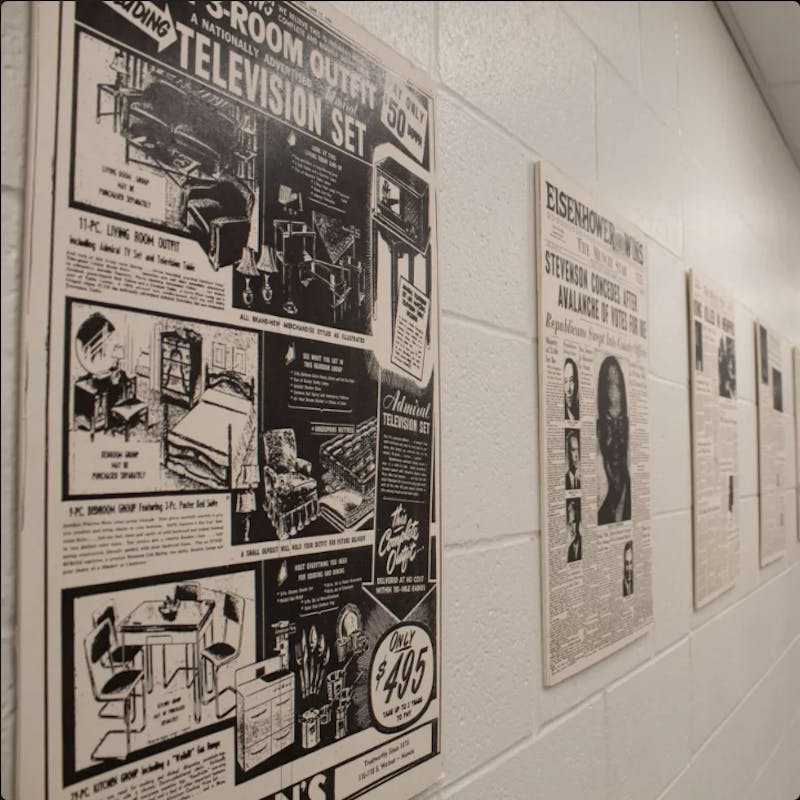Editor’s note: To avoid a conflict of interest, Daily News Director of Recruitment Grayson Joslin and Daily News Digital Managing Editor have both recused themselves from the analysis of the SGA executive slate. Joslin was a senator for SGA in the 2021/22 academic year, while Ground was press secretary for the Elections Board for the 2022 election.
Every year, The Daily News assigns a grade to the outgoing Student Government Association (SGA) executive slate based on how effective it was in accomplishing its goals, along with its impact on the Ball State community.
The Gassensmith & Lindstrand administration, led by former President Joseph Gassensmith and former Vice President Monet Lindstrand, promised a range of initiatives to enhance sustainability, safety, and diversity at Ball State University during their Student Government Association (SGA) term.
RELATED: Ball State Student Government Association point-by-point evaluation
While their ambitions were high, their administration revealed a significant gap between their goals and execution, primarily due to a lack of research and planning.
The administration made sustainability strides, notably continuing the Student Dining Advisory Board and fostering a relationship with dining services. They successfully introduced biodegradable products at several dining halls and improved allergen signage.
However, their goal of replacing every tree cut down with two new ones was never fully realized. Instead, they opted to plant five new trees with SGA plaques.
While this adaptation to the initial platform point was sensible, it highlights a broader issue: the administration's initial promises often exceeded what was practical for them to do.
Efforts to support diversity, equity, and inclusion (DEI) throughout campus were mixed. The administration's ‘identity button’ campaign was well-executed, but the proposed Student Diversity Commission fell short.
Instead, DEI responsibilities were handled by Rileigh Lancaster, who was already SGA’s secretary of DEI. This adjustment suggests a lack of pre-campaign research into the redundancy of their proposals.

Ball State Student Government Associaton (SGA) Presidental Nominee Joseph Gassensmith and Vice Presidental Nominee Monet Lindstrand discuss SGA's community garden. Gassensmith, the current SGA chief of staff, and Monet, the current SGA vice president, have been a part of the senate for three years. Abigail Denault, DN
Why suggest implementing a DEI commission when SGA’s secretary of DEI has already fulfilled that role?
Raising student-body awareness for disability and sexual assault saw limited ‘success’ from the administration. Relevant university offices endorsed the administration's plans for disability awareness, but ultimately failed to pass the faculty council.
Similarly, their sexual assault awareness initiatives were only partially realized. Another organization had already completed the Angel Shot initiative, and efforts to collaborate with residence halls had not materialized as planned.
Instead, they had to rely on SGA’s residence hall representatives to ensure students knew the resources available through the Victim Advocacy Office.
These outcomes underscore a critical point: the administration failed — again — to conduct thorough research into existing programs and feasible partnerships before making public promises.
The administration's safety initiatives faced legal and budgetary hurdles, resulting in implementing awareness signs rather than the previously promised blue lights.
Transportation plans, including adding a second blue loop bus route and introducing more scooters, were similarly impossible because of budget constraints and liability concerns.
The successful placement of a bus stop shelter near Bracken Library was a positive outcome, yet it was simpler than the original, more comprehensive transportation goals.
Their work within student employment and wages primarily involved renaming the Fair Wages Commission and conducting research rather than making substantive changes.
While research is essential, it is not a substitute for significant progress.
Efforts to enhance diversity within the student senate saw some success in filling seats and engaging with a broader range of student organizations. However, the administration struggled with long-term retention issues exacerbated by the COVID-19 pandemic.
Their Beneficence Swipes program, which aimed at addressing food insecurity, remained unfulfilled due to its complexity which led them to pivot. They began supporting existing initiatives like Cardinal Kitchen, a food pantry on campus that SGA initially implemented.
Regarding the final grade to be given to SGA, we are awarding them a C-. They came up with great, highly ambitious ideas. Still, most weren’t feasible, affecting their follow-through on several original platform points. An administration can develop as many creative and ambitious ideas as it wants, but it doesn’t mean much if it can’t follow through with them.
The Gassensmith & Lindstrand administration did demonstrate dedication to essential issues and devised solutions that, if implemented, could greatly benefit the student body. However, their overall success was impaired by a recurring theme: a lack of comprehensive research and realistic planning. This resulted in several unfulfilled promises and necessary pivots away from initial platform points.
Future SGA administrations should prioritize thorough research before announcing their platform points. Understanding budget constraints, legal limitations and existing university initiatives can prevent the need for mid-term adjustments and enhance the credibility of SGA leaders.
By setting realistic, well-researched goals, future administrations can ensure their promises are ambitious and achievable, ultimately leading to more substantial and lasting improvements for the student body.
For comments, contact the Daily News at editor@bsudailynews.com.





The Daily News welcomes thoughtful discussion on all of our stories, but please keep comments civil and on-topic. Read our full guidelines here.